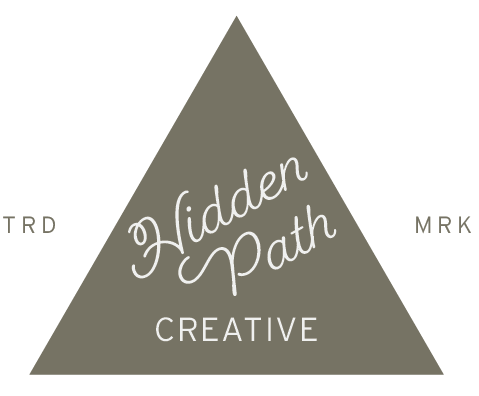Packaging Trends Product-Based Founders Should Actually Pay Attention To
If you’re a product-based founder who’s done the DIY packaging dance (you know, wrangling Canva, printer templates, and whatever font was “free-ish”), let’s take a moment to say: you’ve hustled hard.
But now you’re scaling. You’re eyeing retail shelves and thinking, “Is my packaging actually ready for this?” That’s where the real packaging trends come in, not the fluff on Pinterest boards, but the actual shifts that matter if you want your products to sell, ship, and shine in the U.S. and Canadian markets.
Here’s your founder-friendly guide to the packaging trends that go beyond pretty and lean all the way into practical.
Why Most Trend Lists Miss the Mark for Scaling Founders
Before we begin, let’s clarify one thing: most “top packaging trends” lists are written by print companies or software platforms that prioritize aesthetics.
Gradient fonts!
Curved corners!
Biodegradable everything!
Cool ideas, sure, but they’re often surface-level. As a founder scaling to retail, your packaging needs to do way more than look good on Instagram. It needs to:
Check compliance boxes (hello, FDA and Canadian labeling laws)
Withstand shipping, stacking, and shelf-life challenges
Convey your brand’s value without over-explaining
Fit your margins and production realities
So let’s talk trends that help with that.
1. Minimal Design That Communicates More, Not Less
Minimalism isn’t just “white background + one sans-serif font.” In 2025, it’s about intentional simplicity. Think of it as visual clarity that cuts through the chaos on shelves.
Why It Matters
Retail shelves are noisy. Clean, confident packaging says, “We know exactly who we’re for.” It also photographs well, essential for e-commerce and PR features.
How to Nail It
Limit typefaces to 1–2 max
Use hierarchy: make your product name or hero ingredient shine.
Choose a bold brand color or texture for recognizability.
Bonus Tip
Minimal ≠ generic. You still need personality, just delivered in a more focused way.
2. Clear Compliance Is a Silent Sales Tool
Unsexy? Maybe. Non-negotiable? Absolutely. Innovative founders are treating compliance as a conversion tool, not just a legal checklist.
Why It Matters
In the U.S., FDA regulations specify font sizes, layout standards, and labeling requirements for food, supplements, cosmetics, and other products. In Canada? You’ve got bilingual labeling to consider.
Poor compliance screams “inexperienced brand” to both retailers and savvy shoppers. And worse, your product might get pulled from shelves.
What to Watch
Skincare: Ingredient list, warnings
Food: Nutrition Facts panel, allergens
Supplements: Supplement Facts, structure claims
Jewelry: Country of origin, materials (optional in some regions)
Pro Move
Work with a packaging designer who understands this stuff.
3. Shelf-Ready Structure = Real-World Results
Your label might be flawless, but if the structure doesn’t work, it’s game over.
Hot Structural Trends to Know
Flexible pouches (think: bath salts, powdered supplements, teas)
Paper tubes (especially for lip balms, solid skincare, or jewelry)
Snap-top rigid boxes (great for luxury unboxing)
Flat mailers (if you’re DTC-heavy but eyeing retail partnerships)
Why It Matters
Retail buyers don’t want your gorgeous product to fall over, leak, or stack like Jenga. Packaging structure impacts shipping costs, shelf footprint, and customer satisfaction.
4. Retail-Ready Design Isn’t Optional Anymore
If you’re pitching your product to boutiques or national retailers, your packaging needs to be retail-ready from the jump.
What “Retail-Ready” Really Means
The UPC barcode is scannable and placed correctly
Tamper-evident features for consumables
Coherent back panel hierarchy (no font salad!)
Room for shelf hang tags or display-ready packs
Real Talk
Retailers won’t tell you your packaging is holding you back. They just won’t email back.
5. Sustainable Packaging That’s Actually Sustainable
We’re past the era of brands slapping “eco-friendly” on a poly mailer and calling it a day. Founders are digging into the details.
Trends That Are Sticking
Monomaterials (easier to recycle properly)
Compostable inner bags (especially in food/skincare)
Water-based or soy inks
Reduced packaging size (less waste, less cost)
Quick Tip
Don’t switch to compostable pouches just because a supplier says they’re trendy; test them! Some degrade faster than your product can be sold.
6. Texture, Foil & Finishes Are the New Differentiators
Let’s be honest, when every soap bar or lip balm is “natural,” it’s hard to stand out. Enter tactile finishes.
Popular in 2025
Soft-touch matte laminates (especially in beauty packaging design)
Holographic foil accents (still trending in wellness/skincare)
Embossed logos or patterns (adds elegance to jewelry packaging design)
Why It Works
People still touch items before purchasing them in stores. Texture triggers emotional response and higher perceived value.
7. Color Blocking & Bold Contrast
Muted tones had their moment. Now we’re seeing confident color palettes make a comeback, especially in food, lifestyle, and skincare packaging design.
Great Examples
A jewel-toned label on a kraft box
Bold contrast between the lid and the jar
Oversized color blocks for product variants
Why It Works
Color drives recognition. If you’re on a shelf next to 15 lookalikes, color blocking helps you win the “which one pops” game.
8. Localized, Culturally-Aware Packaging
This is especially big for founders expanding to Canada, or beyond the U.S. West Coast bubble.
What’s Shifting
Bilingual packaging (especially French-English in Canada)
Avoiding cultural assumptions or outdated tropes
Leaning into regional relevance (e.g., highlighting maple syrup sourcing for Canadian markets)
Simple Tip
If your product is sold in a new country or community, review packaging through a cultural lens, not just a brand-centric one.
9. Anti-Counterfeit Features Are On the Rise
Especially in skincare, supplements, and high-end jewelry, founders are now incorporating elements that deter knockoffs.
Tactics You Can Use
Holographic seals or QR codes that verify authenticity
Hidden messages inside packaging
Serial numbers tied to digital records
Worth Noting
If you’re eyeing international retailers or seeing copycat products appear, these small touches can help build customer trust quickly.
10. Packaging as Brand Education
Consumers are smart, but they still need context.
Smart Trend
Packaging that educates without overwhelming. Consider using icons, mini how-to diagrams, or QR codes that lead to usage tips.
Examples That Work
Skincare step number in a routine (e.g., “Step 2: Tone”)
Food prep method or pairing idea
Jewelry care instructions with illustrations
Design that teaches = fewer returns, happier customers, more brand trust.
Trend Recap: What’s Worth Watching?
Here’s your cheat sheet to trends that are actually worth investing in:
Minimal, clear design
Why it Matters: Boosts shelf readability
Ideal For: Beauty, wellness, lifestyleBuilt-in compliance
Why it Matters: Avoids legal & retail headaches
Ideal For: Skincare, supplements, foodStructural packaging updates
Why it Matters: Improves shipping + display performance
Ideal For: Everything from bath salts to balmsRetail-readiness
Why it Matters: Gets you on shelves faster
Ideal For: Founders pitching to storesTactile finishes
Why it Matters: Drives higher perceived value
Ideal For: Jewelry, beauty, high-end lifestyleSustainable materials
Why it Matters: Meets shopper expectations
Ideal For: Meets shopper expectationsBold color blocking
Why it Matters: Creates immediate recognition
Ideal For: Food, personal care, home goodsCultural awareness/localization
Why it Matters: Builds brand trust in new markets
Ideal For: U.S. + Canada-based brandsAnti-counterfeit elements
Why it Matters: Prevents brand dilution
Ideal For: Jewelry, supplements, skincarePackaging that teaches
Why it Matters: Reduces confusion, increases love
Ideal For: Any founder with a process-driven product
Trends Are Tools, Not Templates
Here’s the thing: Not every trend belongs on your product. The best packaging design doesn’t follow every trend; it uses the ones that help tell your brand’s story, support your growth goals, and make your product a no-brainer to buy.
If you’re ready to ditch the guesswork and finally get packaging that checks all the boxes (and then some), let’s make it happen.
Let's Make Packaging That Sells (And Works)
You’ve outgrown the DIY. You’re building something real.
At Hidden Path Creative, I help product-based founders like you go from “meh” to ready for market with packaging design services that are:
Strategic and shelf-aware
Technically sound (yep, we check those FDA and Canadian compliance boxes)
Built for beauty and performance
From skincare packaging design to retail-ready food labels and jewelry packaging design, I’ve got you covered, without the second-guessing.
Explore services at Hidden Path Creative.
Let’s make your next packaging move the smartest one yet.
At Hidden Path Creative, our mission is to support product-based businesses with a standout packaging design that grows their brand recognition and sales.
If you want to work together, please drop us a line here. We love connecting the creators of innovative products.
Oh, and come say hi on Instagram, and join a community of like-minded product entrepreneurs!
Design That Deserves a Save
Your packaging is your first impression — make it unforgettable. Explore our most-loved looks on Pinterest






